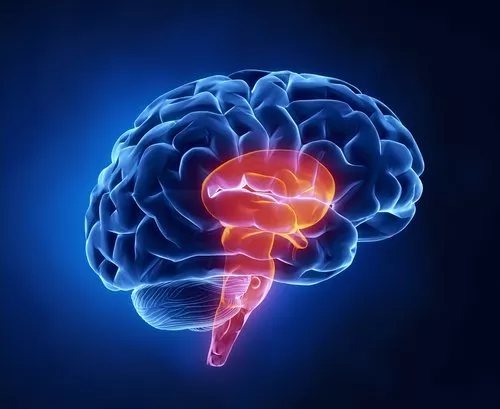Understanding Concussion Vomiting: Causes, Symptoms, and Treatment
Concussions are a common form of traumatic brain injury, often resulting from a blow to the head or violent shaking of the body. Though most people associate concussions with such things as headache, dizziness, and confusion, it’s also worth noting that vomiting can follow a concussion. This article delves into the extent of the relationship between vomiting and concussions, the possible causes, symptoms, and treatment.
Understanding Concussions and Their Effects
A concussion results from an abrupt blow or jolt to the head, which exerts a shaking force on the brain. This action can cause chemical imbalances, interfering with its normal functioning. Concussion manifests as a variety of symptoms: physical, mental, and emotional symptoms are all part of the scenario. Vomiting can also result from the brain’s reaction to the injury. However, not every patient suffering from a concussion will experience vomiting.
Concussion Vomiting: Possible Causes
1. Central Nervous System Activation: The impact or jolt to the head experienced during a concussion may trigger an overall central nervous system stimulation, culminating in increased sensitivity or susceptibility to the vomiting center.
2. Quick Changes in Intracranial Pressure: Concussions usually interfere with the normal pressure exerted within the skull, leading to rapid changes in intracranial pressure. Nausea and vomiting can result from such fluctuations.
3. Autonomic Nervous System Activation: The autonomic nervous system may be activated in the event of a concussion. Its activation may lead to symptoms such as nausea and vomiting.
4. The Severity of the Concussion: The severity of a concussion can be a factor in the predisposition to vomiting. Higher severity of concussions can disrupt brain function more and, therefore, show higher chances of symptoms such as vomiting.
5. A Person’s Predisposition to Motion Sickness: A person might be predisposed to conditions such as motion sickness or others that render them more prone to vomiting or nausea, meaning a concussion could worsen the situation.
6: Vestibular Damage: Injuries that disrupt areas involved in processing balance can often result in feelings of unsteadiness. When disrupted, these areas can give you a false sense of movement, similar to what you would feel when seasick.
Concussion Vomiting: Other symptoms to Expect
Other symptoms often associated with a concussion, besides vomiting, may include the following:
1. Headache: A headache is one of the most common symptoms. A person with a concussion can experience a throbbing, persistent, or intense headache after the injury. Some people report that their headaches are worse than any headache they have ever had.
2. Dizziness and Balance Problems: Dizziness describes sensations of lightheadedness, unsteadiness, or vertigo. There is often difficulty with coordination or balance and in walking.
3. Sensitivity to Light and Noise: Many people with concussions become more sensitive to bright lights and loud noises.
4. Fatigue and Disturbances in Sleep: Many victims feel worn out, exhausted, sleepy, and sometimes have trouble falling asleep or staying asleep.
5. Disorientation and Confusion: These may include feelings of disorientation, confusion, mental fogginess, inability to concentrate, and inability to remember simple things.
6. Problems with Memory: Short-term memory problems will affect the individual’s ability to remember things that have just happened.
7. Visual Changes: Some victims experience blurred or double vision, difficulty focusing on objects, or nystagmus.
8. Emotional Disturbance: Some people develop mood changes such as irritability, anxiety, depression, and heightened emotional reactions, all of which are out of character for the person.
It should be remembered that symptoms can differ between people, and not everyone will have the same combination or severity of the symptoms stated above.
Management and Treatment of Concussion Vomiting
In the case of encountering vomit post-concussion, it is always essential to visit the healthcare provider as soon as possible to obtain a proper diagnosis and treatment plan. Some of the management and treatment plans advised include the following:
1. Rest and Observation: Rest should be taken to allow the brain to heal. Observing the patient closely to monitor the symptoms and rule out further serious complications is also essential.
2. OTC Options: Over-the-counter drugs, like anti-nausea medications, could be recommended to treat vomiting and associated symptoms. However, the patient should visit the healthcare provider before administering the medications.
3. Hydration: Hydration is essential to avoid dehydration from vomiting. Small, frequent sips of water or electrolyte-enriched fluids could be recommended.
4. Gradual return to normal activity: Under medical advice, a gradual reentry to activities such as school or work is necessary with an improvement in symptoms. The Buffalo Concussion Treadmill Test is a best practice to accelerate return to normal activity.
5. Physical and Cognitive Rest: Physical rest from activities, which include exercise, sports, and mentally demanding activities, is essential to give the brain a chance to recover fully.
6. Aroma Therapy: Inhaling essential oils can reduce nausea and vomiting. Lavender oil is particularly effective for nausea and has other benefits for people who have suffered brain injuries. You can try breathing over an open bottle of essential oil or adding it to a diffuser.
Conclusion
Although vomiting can be one of the critical symptoms following a concussion, not everyone who experiences a concussion will experience vomiting. Therefore, understanding some of the possible underlying causes, associated symptoms, and appropriate treatment strategies for concussion vomiting is essential for the individual who has suffered a concussion, as well as for the caregiver. Suppose you or someone you know does experience vomiting or any other symptoms following a head injury. In that case, promptly obtaining medical care is the most important approach you can take. In many cases, with appropriate diagnosis, management, and support, individuals recover and return to their usual functioning.
Visit our clinic website and request a free 30 minute consultation if you need more specific direction during your recovery process.
*Disclaimer: The information contained in this article is for educational and informational purposes only and is not intended to be used or construed as medical advice. Please consult your physician for any condition before changing your health care regimen.




